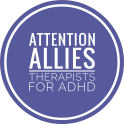Intriguingly, anger is noticeably missing from the formal diagnostic criteria for ADHD. While there is research to support the idea of emotional dysregulation being part of the story, there are perhaps other ways to look at your anger and ADHD. Here, transactional analysis-trained therapist Hayley Watkins takes us through some interesting thoughts on how to understand your anger and its part in your self-protection system.
(4 minute read)
Anger is energetic, it’s forceful, and it can feel good – really bloody good. Anger says, “That person’s being unfair and I won’t stand for it!” That’s why we sometimes get angry when we feel powerless: it’s more reassuring to feel angry than to give up and feel defeated.
It’s empowering. Or at least, it can be.
But you wouldn’t be reading this if you were entirely satisfied with your relationship with anger. So, rather than labelling your experience with anger as “anger issues” and looking at “anger management techniques”, let’s explore what anger means, starting with paying due respect to what it does for us.
The bodyguard emotion
Problems can start to arise when we get angry at ourselves: “I didn’t do my best, so I should be punished for that.” That’s a part of how RSD (Rejection Sensitive Dysphoria) works, and it can make our anger self-destructive, which isn’t helpful for us if we already feel like other people treat us badly for having ADHD.
Anger can also become a problem when we get angry at someone who didn’t cause the problem in the first place. Perhaps we’re angry at Person A but only feel safe to get angry at Person B, or perhaps nobody’s at fault at all. But it still feels “better" to get angry, so we do.
So, how do we make sure we’re not hurting ourselves or the people who care about us?
Protective or destructive?
I could talk here about how you could take a step back, be logical and decide whether you’re being fair to yourself or the other person. If you can do that, then fantastic – go for it! But that’s not the whole story.
Whether we’re angry for the “right" reasons or not, we still feel it. It’s still one of the range of emotions that people feel, and we need to let ourselves process it rather than denying it or pretending it doesn’t exist.
How can we do that? Having a friend who understands that we all get angry sometimes can help. If you and your friend both know that you get angry sometimes, and can talk about it after you’ve cooled down, then that may well be all you need.
With that said, friends who stay around us if we’re often angry can be hard to come by, because they may feel shamed or even scared by anger. If you don’t have anyone in your life to do that, then a therapist might be a good option.
Getting angry at your therapist
So, now you have a therapist. Now things should start getting easier … right? Perhaps, or perhaps not. At some point, you might feel angry at your therapist. But if you feel angry at your therapist, then doesn’t that mean they’re no good? Well, not quite.
“Feeling better” might be your long-term goal, but before we get there, you might need to work on what happens when you get angry – and sooner or later, you almost certainly will get angry at your therapist. The key here is, what do they do when you get angry? A good therapist will usually invite you to talk with them so you can both understand how the anger became part of your relationship, what it’s protecting and how else you might approach the situation.
This is called “processing”. It’s a major part of therapy, and well worth hanging around to do.
Finishing up
This blog post isn’t about discouraging you from ever feeling anger. Anger’s a part of your self-protection system. I wrote this to draw attention to the way we can develop an unhealthy relationship with our anger, and explore what we can do about it. Exploring this is worthwhile because when you have a good relationship with anger, you’ll have a good relationship with your vulnerability. When you have a good relationship with vulnerability, you’ll have closer, more meaningful, more loving relationships.
So, wherever you are on your journey to understanding and processing your own anger, good luck!
Click the links if you'd like to visit Hayley's therapy website or her directory entry on Attention Allies.
Published 17 November 2024
All rights reserved © Copyright Hayley Watkins 2024. Unauthorised use and/or duplication of this material without express and written permission from the author of this post is strictly prohibited. Author contact via website Contact page.
Website version and image © Copyright Attention Allies 2024.
